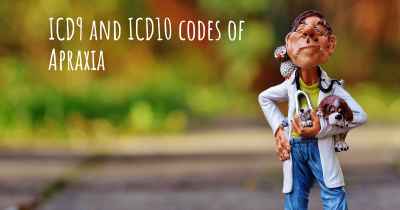What is the history of Apraxia?
When was Apraxia discovered? What is the story of this discovery? Was it coincidence or not?

Apraxia is a neurological disorder that affects a person's ability to perform purposeful movements, despite having the physical ability to do so. It is characterized by a disruption in the brain's ability to plan and execute voluntary movements. The history of apraxia dates back to the late 19th century when it was first recognized and studied by medical professionals.
Early Observations:
The term "apraxia" was coined by the German neurologist Hugo Liepmann in 1900. However, the condition was observed and described by several physicians before him. In the late 1800s, French neurologist Jules Dejerine noticed patients who had difficulty performing purposeful movements, such as dressing or using tools, despite having intact muscle strength. He referred to this condition as "motor agnosia" or "ideational apraxia."
Development of Apraxia Classification:
In the early 20th century, Liepmann expanded on Dejerine's work and further classified apraxia into different subtypes. He distinguished between ideomotor apraxia, where patients have difficulty executing specific movements upon command, and ideational apraxia, where patients struggle to perform a sequence of actions in the correct order.
Contributions of Kurt Goldstein:
Another significant figure in the history of apraxia is Kurt Goldstein, a German neurologist and psychiatrist. Goldstein conducted extensive research on apraxia during the mid-20th century. He emphasized the importance of understanding the underlying cognitive processes involved in apraxia and highlighted the role of the brain's higher-order functions in motor planning and execution.
Advancements in Neuroimaging:
In the latter half of the 20th century, advancements in neuroimaging techniques, such as computed tomography (CT) and magnetic resonance imaging (MRI), allowed researchers to study the brain structures and functions associated with apraxia more comprehensively. These imaging techniques provided valuable insights into the neural mechanisms underlying apraxia.
Subtypes and Causes:
Over time, researchers have identified various subtypes of apraxia, including limb-kinetic apraxia, buccofacial or orofacial apraxia, and constructional apraxia. Each subtype is characterized by specific impairments in different motor tasks.
Apraxia can have different causes, including stroke, traumatic brain injury, brain tumors, neurodegenerative diseases (such as Alzheimer's and Parkinson's), and certain genetic conditions. Understanding the underlying causes has helped in developing targeted treatment approaches for apraxia.
Current Research and Treatment:
Today, researchers continue to explore the complexities of apraxia and develop new treatment strategies. Occupational and speech therapy play a crucial role in helping individuals with apraxia regain and improve their motor skills. These therapies focus on retraining the brain and facilitating the formation of new neural pathways to compensate for the impaired motor planning and execution.
Advancements in technology, such as virtual reality and robotics, are also being utilized to enhance rehabilitation programs for individuals with apraxia. These innovative approaches provide interactive and engaging environments that promote motor learning and recovery.
Conclusion:
The history of apraxia spans over a century of research and observations. From its early recognition by Dejerine to the classification by Liepmann and the contributions of Goldstein, our understanding of apraxia has significantly evolved. Advancements in neuroimaging techniques and ongoing research continue to shed light on the underlying mechanisms of apraxia, leading to improved diagnosis and treatment options for individuals affected by this neurological disorder.








